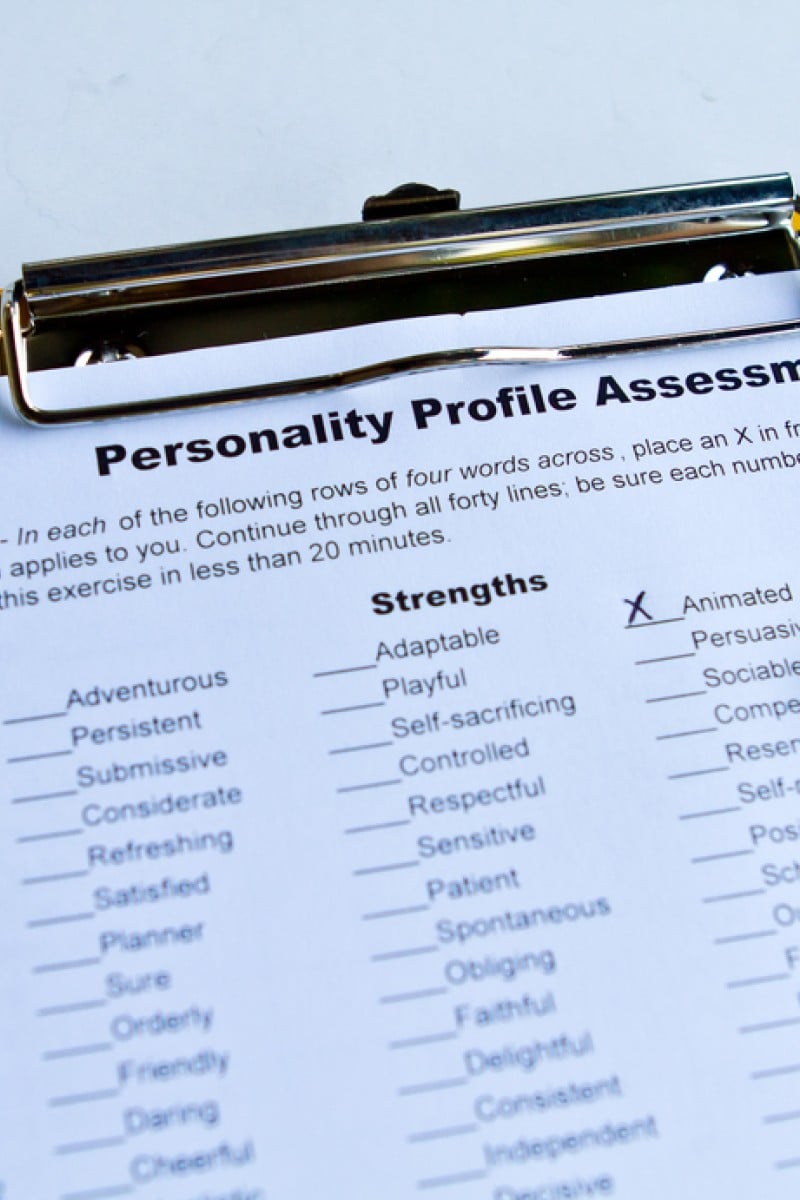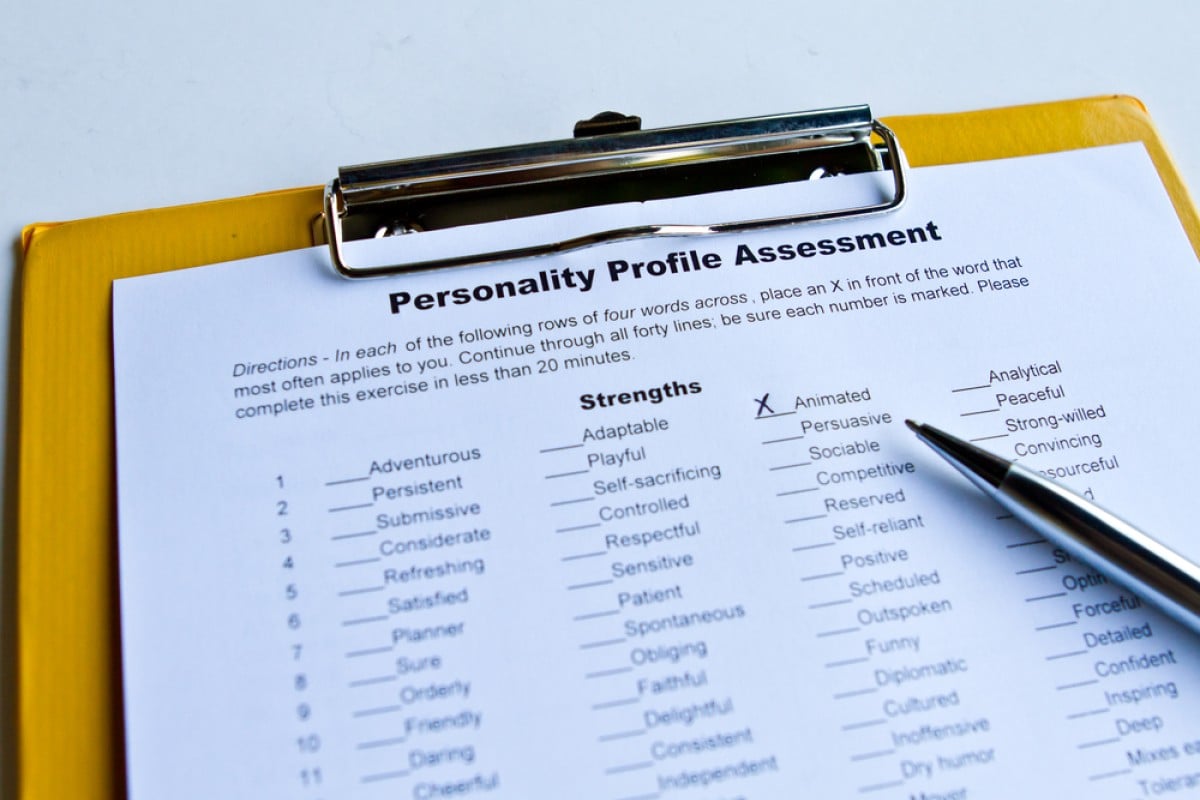
5 myths about personality tests such as the Myers–Briggs Type Indicator, and why they are still useful for employers
Online tests claim to know all our true character traits, but are they reliable?

The word “personality” first came into use in the 13th century, when it simply referred to being human. By the 18th century, its meaning had changed to refer to a person’s individual traits. In the 19th and 20th centuries, people began to come up with new systems to group humans into different categories – like personality tests. Today, these tests are more popular than ever, especially on websites like BuzzFeed and Facebook. However, these tests are based on some long-standing myths about what personality really is and how we can measure it. Here are five of those myths.
Growing Pains: How to stand up for yourself - assertiveness is a skill that can be learned
Personality is genetic
Many people believe that your personality is something you are born with. Katharine Briggs, co-creator of the well-known Myers-Briggs Type Indicator (MBTI), once said that “every one of us is born either an extravert or an introvert, and remains extravert or introvert to the end of his days”. Tests like the MBTI claim that they allow their subjects to discover their true, essential selves. What's more, a major study of personality development found that a child’s genetic makeup had a stronger influence on their personality than their upbringing did.
Yet other studies have reached different conclusions about when personality becomes fixed: during our school years, or when we enter the workforce? At 17 or 21 or 25 or 30?
More importantly, different personality tests label and measure traits in different ways. Some might measure extroversion and introversion. Others will look at agreeableness or openness to new experiences. Some may use multiple-choice questionnaires, while others will use checklists of self-descriptive adjectives. The results may then be interpreted using distinct categories, or a scale. In short, there is nothing natural about the way we discuss personality; it is a human invention.
How educational psychologists help SEN students learn to the best of their abilities
Personality tests are based on the science of psychology and designed by psychologists
Personality tests are used by psychologists, are taught in psychology, and feature in many textbooks. The American Psychological Association says knowing how to use these tests is a necessary “proficiency in professional psychology”.
But some of the most popular personality assessments were made by amateurs. Briggs and Myers had no formal training in psychology or sociology. They were wives and mothers who believed that their experience tending to the emotional needs of their children and husbands made them well suited to understanding individual personalities. They designed their questions based on 19th-century novels, texts on psychoanalysis, and biographies of famous men, and them tested them on their family and friends.
This is why life feels too much sometimes and what you can do to help yourself feel better
The questions on personality tests are unbiased
Personality tests claim to ask questions that are completely neutral, and at first glance, this seems true. Consider these two questions from the MBTI: “In your daily work, do you a) rather enjoy an emergency that makes you work against time; or b) usually plan your work so you won’t need to work under pressure?” And: “In planning a trip, would you prefer to a) most of the time do whatever you feel like that day; or b) know ahead of time what you’ll be doing most days?”
The MBTI’s publishers say the questions are appropriate for anyone who can read at a Form Two or Year Eight level – but that leaves out a huge chunk of the world’s population. The questions are also far from universal. They involve making decisions about what to do at parties, how to plan a holiday, or how to succeed at an office job or at school. Many people have never had the money, the leisure time or the opportunity to make these kinds of decisions.
Here’s how Richard Thaler combined psychology with economics to win a Nobel Prize
Personality assessments are valid and reliable
Personality tests are sold on the idea that they are valid (they measure what they say they will measure) and reliable (they produce consistent results).
“Many studies over the years have proven the validity of the MBTI instrument,” says the Myers & Briggs Foundation. But all major personality tests have faced challenges when it comes to their reliability. For example, a 1991 study commissioned by the National Research Council on the MBTI found that its test-retest reliability – whether you got the same results when you took it more than once – fell very short of the American Psychological Association’s reliability benchmarks: only 24 to 61 per cent of subjects received the same result when they took the test multiple times.
Resilient, anxious or avoidant: which stress type are you, and how do you deal with problems?
Personality tests are harmless fun, like astrology
“The Myers-Briggs is useful for one thing: entertainment,” declared the news website Vox, while the Smithsonian magazine said that “the Myers-Briggs Personality Test is pretty much meaningless”.
But personality tests shouldn’t always be considered a fun distraction. Unlike astrology and horoscopes, personality tests are used by powerful institutions to make decisions with far-reaching consequences. One in five Fortune 1000 companies uses some means of personality testing to help them hire new employees.
Because of their widespread use by employers and HR departments, personality tests have turned our personalities into something that can be packaged. They have been used to prop up the idea that, if only we could find the jobs best suited to our personalities – if only we could “love what we do” – then we could gladly devote ourselves to our work. This is tremendously beneficial to employers. It helps persuade people to do their jobs without complaining, without dreaming of a better, fairer workplace – or a world where the workplace is no longer what society revolves around.
